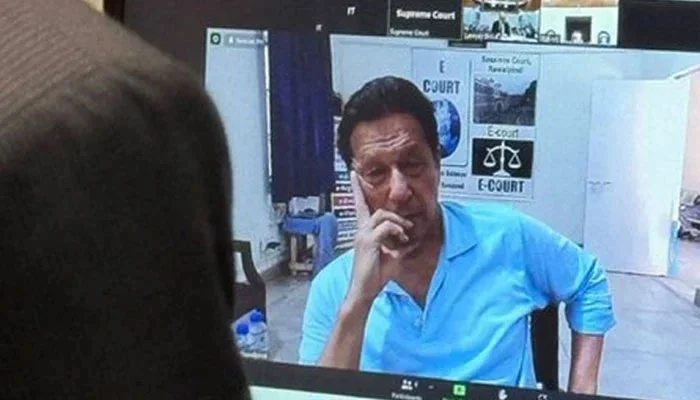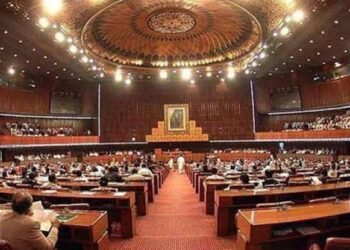ISLAMABAD; Barring a sudden legal breakthrough, political deal, or unexpected court relief, Pakistan Tehreek-e-Insaf (PTI) founder Imran Khan is expected to remain behind bars through 2026 — and possibly longer.
According to senior journalist Ansar Abbasi’s report in The News, Imran Khan’s release appears unlikely in the near future due to the complex and prolonged nature of his ongoing cases and convictions, as well as the Islamabad High Court’s (IHC) existing procedural priorities.
While some PTI hardliners continue to favor confrontation with the establishment, moderate voices within the party are reportedly alarmed by Khan’s situation, fearing it will not improve unless the party adopts a more pragmatic approach.
Party sources believe the former prime minister’s legal troubles are far from over. His and Bushra Bibi’s appeals in the Al-Qadir Trust case — where both received 14-year sentences — have yet to be scheduled for hearing by the IHC. Before that, the couple’s plea for suspension of their conviction must also be heard, but no date has been set.
Under the IHC’s “Fixation Policy,” cases are heard in chronological order, giving priority to older and more serious criminal matters, especially those involving death or life imprisonment. As a result, Khan’s appeal, filed in January 2024, remains pending amid a significant case backlog.
Adding to his woes, the Toshakhana-II case — now nearing its conclusion — could result in another conviction, further extending his imprisonment. PTI insiders admit that continued confrontational politics have complicated Khan’s legal prospects, limiting opportunities for dialogue or relief.
Furthermore, several May 9-related cases are still under trial, and legal experts acknowledge that the prosecution has enough procedural room to delay proceedings. Even if acquittals or bail are granted in some matters, other pending cases could keep Khan incarcerated.
Legal observers suggest that unless there is an extraordinary judicial or political intervention, Imran Khan’s imprisonment may last well into 2026, if not beyond.





































































